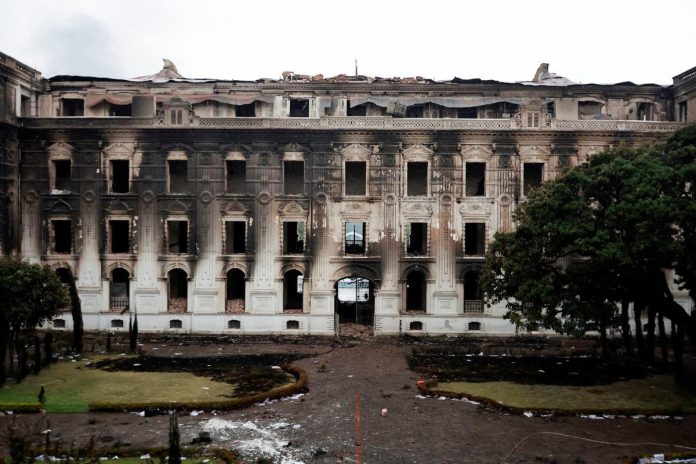THIS week, the news has been a relentless drumbeat of unrest. In Gaza, bombs are once again raining down, reducing homes to rubble and leaving lives tattered and torn. In Nepal, thousands flood the streets in defiance of political elites. In Indonesia, demonstrations swell as citizens demand accountability from their leaders.
Every headline is a reminder that peace is fragile and that anger – when left to boil – always finds its way onto the streets.
And then, I look around at home, Malaysia is not perfect. We argue about subsidies, grumble about rising prices and complain about politicians who seem more interested in scoring points than solving problems.
But at night, the only explosions we hear are firecrackers from a neighbourhood wedding. The only tear gas that fills our lungs is the smoky sambal at the mamak.
Our children go to school without the fear that they may not return. We live our lives in a kind of normalcy that is ordinary and extraordinary.
It is easy to take this peace for granted; to scroll past images of bloodied streets in Gaza or smoke-filled protests in Jakarta and Kathmandu, and treat them as someone else’s problem.
The truth is, we are not immune; Malaysia has its own fault lines – racial tension, political polarisation, economic inequalities – that if left unattended, could split wide open.
We often talk about peace as if it is the default state of things but peace does not happen by accident; it is built brick by brick – through dialogue, compromise, institutions that hold leaders accountable and communities that refuse to let differences turn into hatred.
It is maintained when leaders act responsibly, when people choose ballots over bricks and when anger is channelled into reform instead of riot.
What we are witnessing abroad should not just make us sigh in relief that “at least that’s not us”. It should also serve as a warning of what happens when trust in government evaporates, when corruption eats away at legitimacy and when citizens believe their voices cannot be heard unless they shout them in the streets.
In Gaza, peace is shattered not just by rockets but by the absence of justice. In Nepal, citizens are tired of leaders who promise much and deliver little. In Indonesia, frustrations about inequality and governance erupt because the system feels rigged against the ordinary rakyat.
Strip away the geography, and the grievances won’t sound so different from conversations we have at our own dining tables.
We have the privilege of calm but privilege is fragile. Every time our politicians play racial cards for a quick cheer, every time corruption goes unpunished and every time ordinary people feel their struggles are ignored, that fragility is tested. Peace erodes slowly until one day it is gone.
What do we do with this? We don’t panic, we don’t start seeing enemies where there are none; instead, we nurture the calm. We defend institutions that safeguard fairness.
We teach our children that disagreement does not have to mean destruction. We hold our leaders accountable without burning our neighbours’ houses down.
And most of all, we remember that peace is not silent. Peace is noisy with debate, with protests that end without bloodshed and with conversations that sometimes sting but do not scar. The measure of peace is not the absence of anger but the presence of ways to express it without violence.
So as the world burns, Malaysia sits in relative calm. That calm is a blessing but it is not guaranteed. We cannot outsource its protection to politicians, nor assume it will withstand every storm. It is in our hands – mine, yours and our children’s.
If there is one lesson to take from Gaza, Nepal and Indonesia, it is this: peace can crumble faster than we think. And when it is gone, no subsidy or development plan can bring it back easily.
For now, when we sip our teh tarik at the mamak and argue over football or fuel prices, let us pause to appreciate what that ordinary scene represents; it represents safety, trust and the space to live freely. Ordinary peace is the most extraordinary gift we have.
The world reminds us daily that it can vanish. Our responsibility is to make sure it doesn’t.
Hashini Kavishtri Kannan is the assistant news editor at theSun.
Comments: letters@thesundaily.com








